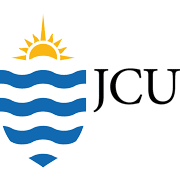Prepare for high-level nurse roles with a postgraduate course on managing and leading.

Course Overview
Managers with administration skills and leadership qualities are needed wherever nursing care is delivered. A Graduate Certificate in Leadership and Management prepares experienced nurses to take on vital coordination roles. You learn how to better model the behaviour of leaders, plan and strategise for team success, communicate effectively, and perform administrative tasks.
Course participants explore topics such as leadership fundamentals, clinical oversight, human resources, budget administration, and maintaining quality in healthcare. As the course is relatively short, consisting of only four subjects, it serves as a platform for continued study towards a graduate diploma or master's degree.
Graduates are prepared and qualified for supervisory roles, associate nurse unit manager jobs, clinical leadership positions, advanced clinical roles, and other jobs where the ability to manage and lead is essential. The skills are highly transferable and are associated with higher pay grades.
What Is a Graduate Certificate in Leadership?
A Graduate Certificate in Nursing Leadership is a four-subject course available to registered nurses and midwives. The course typically forms part of a larger master's program, with graduates having the option to complete a further eight subjects to earn a master's degree.
Key takeaways
- Aimed at registered nurses and midwives.
- Advanced postgraduate qualification.
- Four subjects, extendable to a 12-subject masters.
- Eligible for Qualification Allowance payments.
- Focuses on leadership and management skills.
Graduate Certificates in Nursing are highly regarded postgraduate qualifications. At Level 8 in the Australian Qualifications Framework, they are one level above a bachelor degree (Level 7) and one below a master's degree (Level 9). The Qualification Allowance provisions for nurses in every state and territory of Australia recognise them, with payments averaging above $3k per year.
A leadership specialisation means that the four subjects are oriented towards developing skills useful for aspiring and current managers. A key aspect of the role of a nurse manager is to be a leader to others, which means fostering a supportive and collaborative environment, guiding teams through challenges, and mentoring nurses to achieve their full potential.
Related: Benefits of a Graduate Certificate in Nursing
Study Online

Online learning enables full-time nurses to earn a Graduate Certificate in Nurse Leadership and Management. Part-time online study fits into your available hours outside of work. You can connect with instructors and classmates online. For a low-stress experience, students focus on one subject at a time, completing one every couple of months, and without final exams.
JCU Online - Graduate Certificate of Nursing (Leadership and Management)
The Graduate Certificate of Nursing (Leadership and Management) at James Cook University is an 8-month, part-time online course. It comprises four subjects: Leading and Managing in Health, Ethics and Health Management, Effective Clinical Governance, and Persuasive Communication. Students complete one subject at a time over 7-week periods. The course explores staffing and performance, implementing change, quality enhancement, and strategic planning. JCU's interactive online environment includes videos, forums, exercises, and live chat sessions.
Benefits of Studying Leadership and Management

The purpose of a postgraduate nursing leadership course is to gain the skills and knowledge needed to succeed in manager roles. To be effective in clinical practice and advance your career, studying how to manage a team, motivate its members, and coordinate tasks is beneficial. The skills gained are valuable for nurses at any level, as nursing care is a team pursuit.
Job opportunities
Significant increases in responsibilities and earnings can be achieved by demonstrating your management ability and eagerness to learn and grow. With a postgraduate university qualification in this field, you can confidently apply for positions such as Senior Registered Nurse and Associate Nurse Unit Manager. With appropriate experience, a management graduate certificate will also position you for roles like Nurse Unit Manager, Clinical Nurse Consultant and Clinical Nurse Educator.
Leadership skills can also be developed and applied to non-managerial advanced practice nursing roles, including those of Clinical Nurse Specialist and Nurse Practitioner.
Learning outcomes
Breakthroughs in your ability to inspire and lead come from in-depth study. This postgraduate nursing course enables you to view experiences and observed supervisory practices in a new light. You may explore leadership principles, engage in varied projects and case studies, and raise self-awareness. Students learn proven methods of management practice, moving beyond a trial-and-error approach.
You will also build a toolkit of managerial skills to improve your on-the-job performance. Students learn hard skills such as strategic planning, financial management, and quality assurance. Soft skills you may also strengthen include managerial communication, team building methods, and approaches to resolve conflicts.
Related: Why Study Leadership and Management?
Health Leadership and Management Course

Just because you are a nurse doesn't mean you have to choose a highly nursing-focused course to learn about managing. Many nurses, along with other healthcare professionals, study health leadership and management or a similar field. These programs take a broader, more multi-disciplinary approach to healthcare coordination and services delivery.
